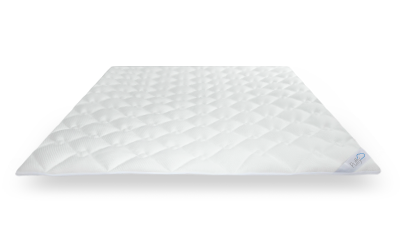Choosing the right sleeping gear is crucial for any camping trip, with comfort and convenience being paramount. The debate between using an air mattress and a sleeping pad is a common one among outdoor enthusiasts.
Both options offer distinct advantages and drawbacks, and the best choice depends on various factors such as camping location, season, and personal comfort preferences.
Sleeping Pad vs Air Mattress
When planning for an outdoor adventure, ensuring a good night’s sleep is as crucial as packing the right gear. The debate between using a sleeping pad versus an air mattress is a common one among campers and hikers.
Both options offer unique benefits and drawbacks, tailored to different camping styles and preferences. Understanding the key differences between these two can help you make an informed decision for your next trip.
Sleeping Pads: Lightweight Comfort
Sleeping pads are favored by backpackers and minimalist campers for their lightweight and compact design. They provide a layer of cushioning and insulation between the sleeper and the ground, crucial for warmth and comfort during the night.
- Types: There are three main types of sleeping pads: foam, self-inflating, and air pads. Foam pads are the most durable and offer excellent insulation but are bulkier. Self-inflating pads strike a balance between comfort and portability, while air pads are the lightest, with adjustable firmness.
- Benefits: The primary advantage of sleeping pads is their insulation. Even a thin pad can significantly reduce heat loss to the ground, which is vital in colder environments. They’re also easier to set up and pack away, requiring no inflation or deflation.
- Considerations: While sleeping pads are convenient and effective for insulation, they generally offer less cushioning than air mattresses. This might be a drawback for side sleepers or those who prefer a softer sleeping surface.
Air Mattresses: Elevated Comfort
Air mattresses are the go-to for car campers and those willing to carry a bit more weight for enhanced comfort. They offer a thicker cushion of air between the sleeper and the ground, mimicking the feel of a traditional bed.
- Features: Modern air mattresses are equipped with features like built-in pumps for easy inflation, adjustable firmness levels, and even dual chambers to accommodate couples with different comfort preferences.
- Advantages: The thickness and adjustability of air mattresses provide superior comfort, especially for those with back issues or side sleepers. They’re also elevated off the ground, which can offer additional insulation in colder weather.
- Downsides: The main drawbacks of air mattresses are their bulkiness and the risk of punctures. They’re not ideal for backpacking due to their size and weight, and a leak can mean a very uncomfortable night.
After a thrilling outdoor adventure, resting on a Puffy Lux Mattress in your bedroom can provide the ultimate comfort recovery. The luxurious feel and support of their mattress ensures a deep, restorative sleep, perfectly complementing your adventurous lifestyle by offering unparalleled relaxation once you’re back indoors.
Interested in how Puffy stacks up against other brands? Check out our mattress comparisons: Puffy vs Purple, Puffy vs Nectar, Puffy vs Casper, Puffy vs Leesa, Puffy vs Saatva, Puffy vs DreamCloud, and Puffy vs Tuft and Needle.
Air Mattress or Sleeping Pad for Different Camping Scenarios
The decision between an air mattress and a sleeping pad ultimately comes down to the type of camping you plan to do and what you prioritize in a sleeping surface. Here are a few considerations to guide your choice:
- Camping Type: Backpackers should lean towards sleeping pads for their light weight and compactness. In contrast, car campers might prefer the comfort of an air mattress.
- Sleeping Comfort: If you have specific needs, like back support or cushioning, an air mattress might be more suitable. However, for those who prefer a firmer surface or need better insulation from the ground, a sleeping pad is ideal.
- Setup and Portability: Consider how much time and effort you want to spend on setup. Sleeping pads are generally quicker to set up than air mattresses, which may require an air pump and more time to inflate.
Check out Puffy mattress reviews from real customers and see how we compare with other brands.
Key Considerations for a Comfortable Camping Sleep
- Sleeping Surface: Consider the terrain and temperature of your camping location.
- Packing Space: Evaluate how much room you have for your sleeping gear.
- Sleeping Habits: Think about your sleeping preferences and if you require more cushioning or support.
Returning home from the rugged outdoors, the transition to a Puffy Lux Mattress offers an unmatched sleeping experience. Its premium comfort envelops you, ensuring that every night’s rest is a rejuvenating escape from the day’s exertions, making it the ideal way to recharge after your adventures.
Use our store locator to find the closest furniture or mattress store near you and feel the cloudlike comfort of our Puffy Mattress in person.
Conclusion
The choice between an air mattress and a sleeping pad significantly impacts your camping experience. While air mattresses offer unparalleled comfort akin to sleeping on a traditional bed, sleeping pads provide practicality and insulation critical for roughing it in the wild.
Your decision should be based on the type of camping you plan to do, your comfort preferences, and the conditions you expect to encounter. Remember, the right choice will ensure you wake up refreshed and ready to enjoy your outdoor adventures to the fullest.

- Fitted, elasticated design.
- Oeko-Tex® Standard 100 certified.
- Breathable and hypoallergenic.
- Lifetime warranty.
- 101-night sleep trial.
- Free shipping and returns.












